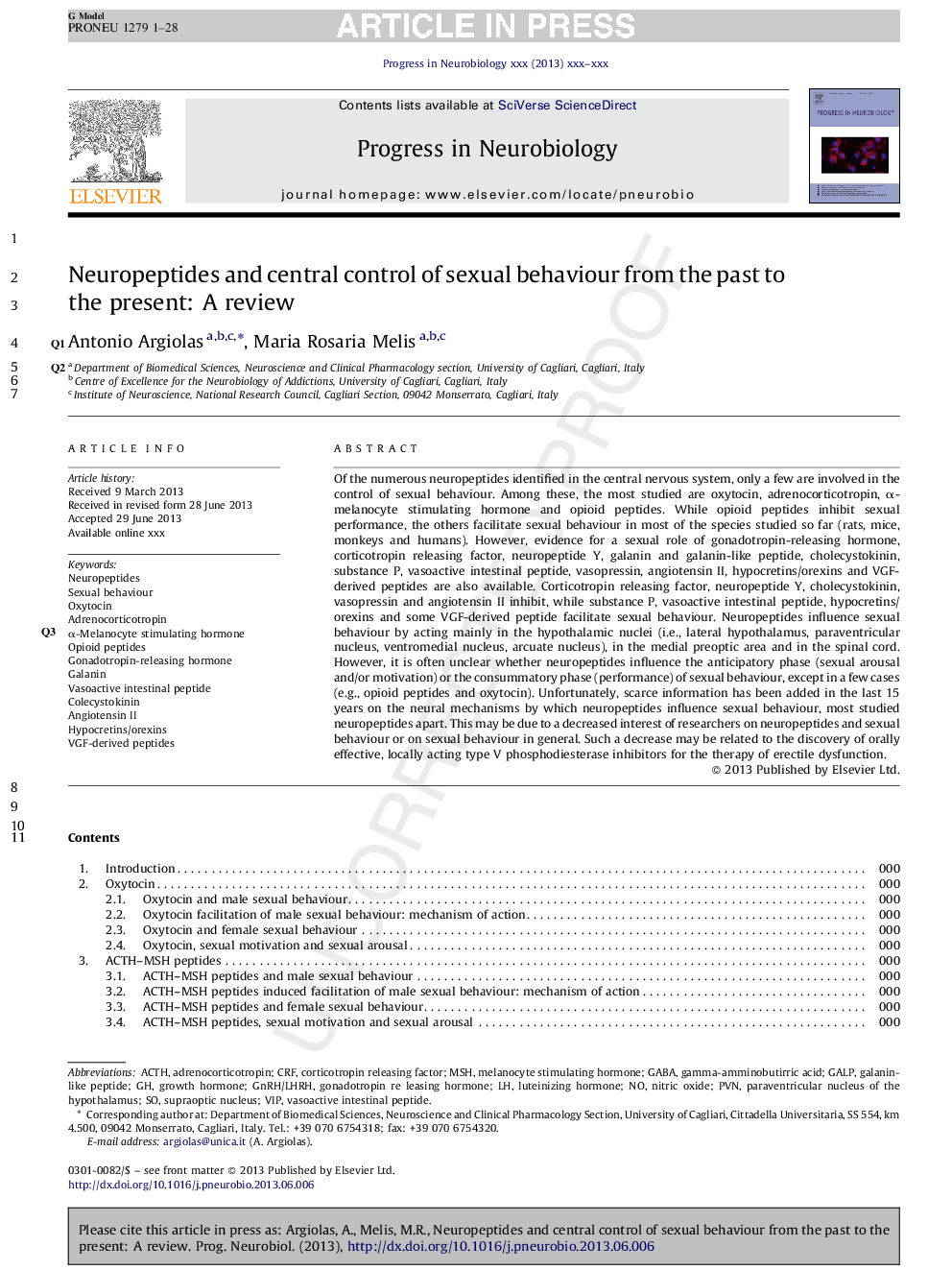| کد مقاله | کد نشریه | سال انتشار | مقاله انگلیسی | نسخه تمام متن |
|---|---|---|---|---|
| 6286549 | 1615401 | 2013 | 28 صفحه PDF | دانلود رایگان |
عنوان انگلیسی مقاله ISI
Neuropeptides and central control of sexual behaviour from the past to the present: A review
دانلود مقاله + سفارش ترجمه
دانلود مقاله ISI انگلیسی
رایگان برای ایرانیان
کلمات کلیدی
ACTHMSHGALPVIPCRFadrenocorticotropin - آدرنوکورتیکوتروپینoxytocin - اکسیتوسینSexual behaviour - رفتار جنسیcorticotropin releasing factor - عامل آزاد کننده کورتیکوتروپینPVN - مالیات بر ارزش افزودهPenile erection - نعوظ آلت تناسلیNeuropeptides - نوروپپتیدهاNitric oxide - نیتریک اکسیدSupraoptic nucleus - هسته Supraopticparaventricular nucleus of the hypothalamus - هسته پروانه مرکزی هیپوتالاموسgonadotropin releasing hormone - هورمون آزاد کننده گنادوتروپینmelanocyte stimulating hormone - هورمون تحریک ملانوسیتیluteinizing hormone - هورمون جسم زردGrowth hormone - هورمون رشدvasoactive intestinal peptide - پپتید روده روده ایgalanin-like peptide - پپتید مانند گالانینOpioid peptides - پپتیدهای اپوئیدیGABA - گابا
موضوعات مرتبط
علوم زیستی و بیوفناوری
علم عصب شناسی
علوم اعصاب (عمومی)
پیش نمایش صفحه اول مقاله

چکیده انگلیسی
Of the numerous neuropeptides identified in the central nervous system, only a few are involved in the control of sexual behaviour. Among these, the most studied are oxytocin, adrenocorticotropin, α-melanocyte stimulating hormone and opioid peptides. While opioid peptides inhibit sexual performance, the others facilitate sexual behaviour in most of the species studied so far (rats, mice, monkeys and humans). However, evidence for a sexual role of gonadotropin-releasing hormone, corticotropin releasing factor, neuropeptide Y, galanin and galanin-like peptide, cholecystokinin, substance P, vasoactive intestinal peptide, vasopressin, angiotensin II, hypocretins/orexins and VGF-derived peptides are also available. Corticotropin releasing factor, neuropeptide Y, cholecystokinin, vasopressin and angiotensin II inhibit, while substance P, vasoactive intestinal peptide, hypocretins/orexins and some VGF-derived peptide facilitate sexual behaviour. Neuropeptides influence sexual behaviour by acting mainly in the hypothalamic nuclei (i.e., lateral hypothalamus, paraventricular nucleus, ventromedial nucleus, arcuate nucleus), in the medial preoptic area and in the spinal cord. However, it is often unclear whether neuropeptides influence the anticipatory phase (sexual arousal and/or motivation) or the consummatory phase (performance) of sexual behaviour, except in a few cases (e.g., opioid peptides and oxytocin). Unfortunately, scarce information has been added in the last 15 years on the neural mechanisms by which neuropeptides influence sexual behaviour, most studied neuropeptides apart. This may be due to a decreased interest of researchers on neuropeptides and sexual behaviour or on sexual behaviour in general. Such a decrease may be related to the discovery of orally effective, locally acting type V phosphodiesterase inhibitors for the therapy of erectile dysfunction.
ناشر
Database: Elsevier - ScienceDirect (ساینس دایرکت)
Journal: Progress in Neurobiology - Volume 108, September 2013, Pages 80-107
Journal: Progress in Neurobiology - Volume 108, September 2013, Pages 80-107
نویسندگان
Antonio Argiolas, Maria Rosaria Melis,